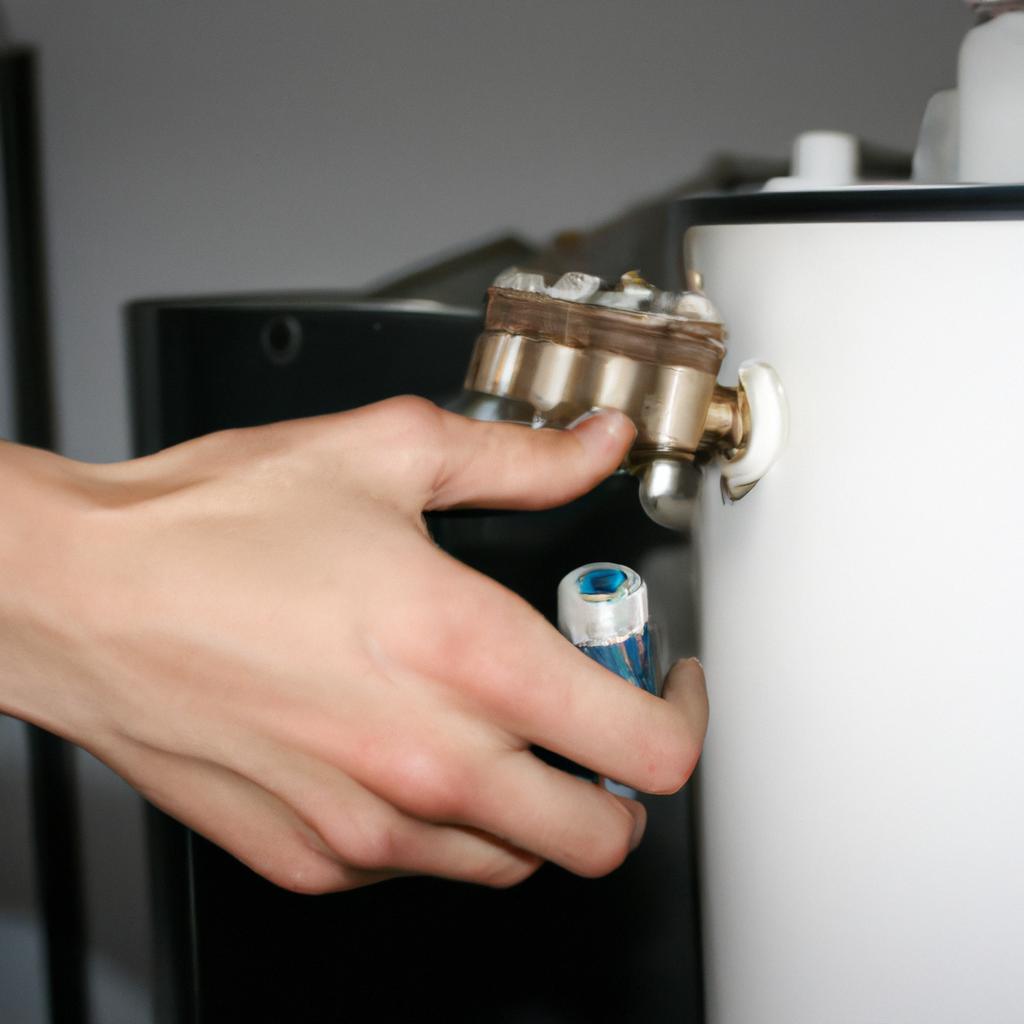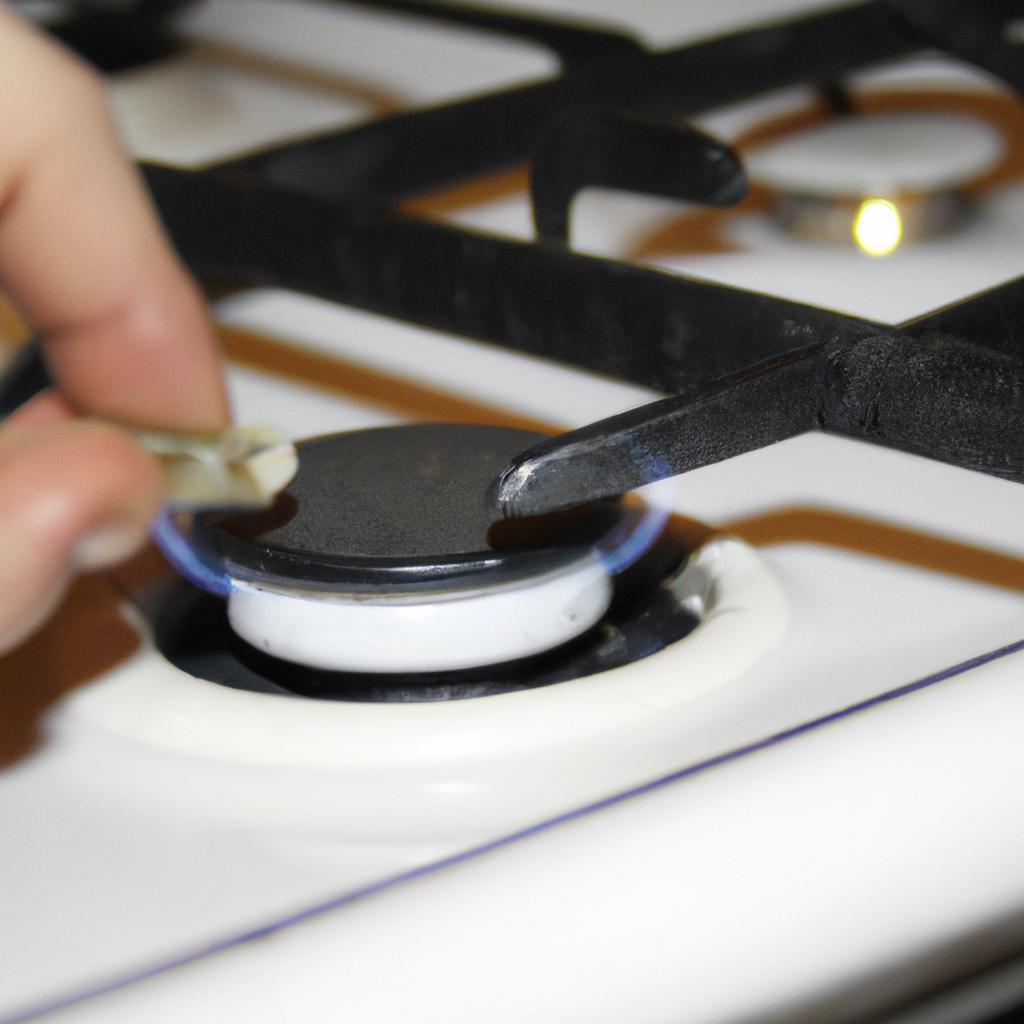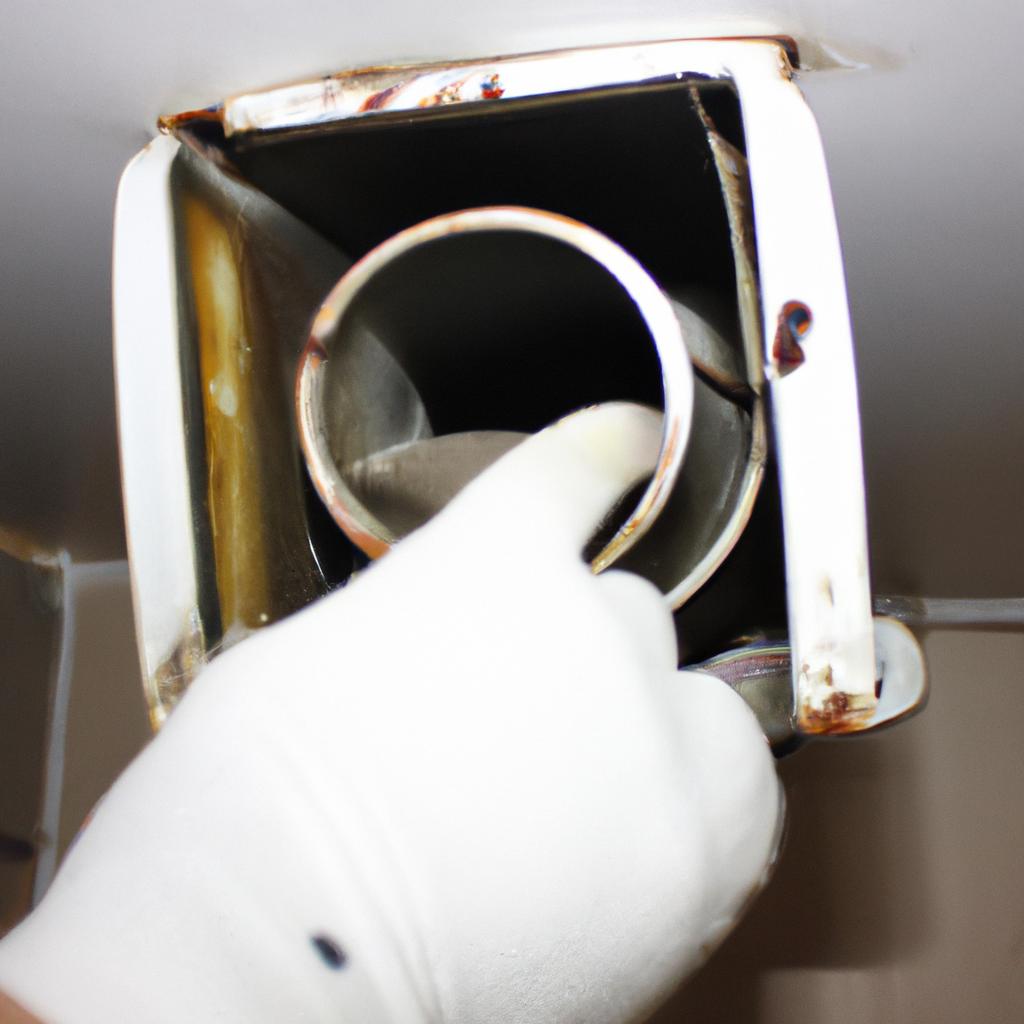Gas appliances, boilers, and stoves play a crucial role in our everyday lives, providing us with the comfort and convenience of heating and cooking. However, without proper maintenance and regular inspections, these appliances can pose a significant risk of gas leaks. One such case occurred in a residential building where an unnoticed gas leak from a faulty stove led to a devastating explosion. This incident serves as a stark reminder of the importance of gas leak detection and preventive measures to ensure the safety of both occupants and property.
In this article, we will explore essential maintenance tips for gas appliances, boilers, and stoves to help homeowners mitigate the risks associated with potential gas leaks. It is imperative that individuals understand the signs indicating possible gas leaks and take proactive steps to prevent accidents or dangerous situations from arising. By adhering to recommended guidelines for maintenance procedures and implementing effective detection methods, homeowners can safeguard their households against potentially catastrophic consequences caused by undetected gas leaks.
Importance of Regular Inspections
Importance of Regular Inspections
Gas appliances, boilers, and stoves are essential components in many households, providing heat for cooking and warmth during the cold months. However, it is crucial to recognize that these gas-powered devices carry inherent risks if not properly maintained. Regular inspections play a vital role in ensuring the safety and functionality of such equipment.
For instance, consider a hypothetical scenario where a family neglects regular inspections on their gas stove. Over time, unnoticed wear and tear accumulate within the appliance’s internal components. One day, while preparing dinner, they smell an unusual odor resembling rotten eggs – an indication of a potential gas leak. Panic sets in as they realize that this oversight could have led to a hazardous situation or even an explosion.
To emphasize the significance of regular inspections further, let us outline four key points:
- Preventative Maintenance: Routine examinations by qualified professionals can identify minor issues before they escalate into major problems.
- Enhanced Safety Measures: Gas leaks pose serious health hazards such as nausea, dizziness, or even carbon monoxide poisoning. Regular inspections help mitigate these risks by detecting leaks promptly.
- Optimal Device Performance: Well-maintained appliances operate efficiently with reduced energy consumption and lower utility costs.
- Extended Lifespan: Timely maintenance ensures longevity for your gas appliances, saving you from premature replacements or costly repairs.
Additionally, we present below a table summarizing the benefits mentioned above:
| Benefits | Description |
|---|---|
| Preventative Maintenance | Identifying minor issues early on to prevent major problems |
| Enhanced Safety Measures | Detection of gas leaks to ensure personal well-being |
| Optimal Device Performance | Efficient operation resulting in reduced energy consumption |
| Extended Lifespan | Prolonging the lifespan of your appliances through proper upkeep |
In conclusion, regular inspections are paramount when it comes to gas appliances, boilers, and stoves. Through preventative maintenance, enhanced safety measures, optimal device performance, and an extended lifespan, these inspections provide peace of mind for homeowners. In the subsequent section, we will delve into the signs that indicate a potential gas leak so that you can be alert and take appropriate action.
[Transition sentence]: Now let us explore the signs of gas leaks to watch out for in order to ensure your safety and well-being.Signs of Gas Leaks to Watch Out For
Gas leaks can be extremely hazardous and potentially life-threatening if not detected and addressed promptly. Regular inspections play a crucial role in ensuring the safety of gas appliances, boilers, and stoves. By identifying potential issues early on, these inspections help prevent accidents and maintain the optimal functioning of these devices.
For instance, consider a hypothetical case where a homeowner neglects regular maintenance for their gas boiler. Over time, small leaks may develop unnoticed, leading to an accumulation of dangerous gases within the home. Without proper detection and repair, this situation could escalate into a serious health hazard or even result in an explosion. This example highlights the importance of regular inspections as a preventive measure against such risks.
To properly maintain gas appliances, boilers, and stoves and mitigate the risk of gas leaks, it is essential to follow some key maintenance tips:
- Schedule annual professional inspections: Engaging qualified technicians to conduct thorough examinations ensures that all components are inspected systematically.
- Keep vents clear: Ensure that vents are free from blockages to allow for adequate airflow and venting of combustion byproducts.
- Check seals regularly: Inspect appliance seals for any signs of damage or deterioration that could lead to leakage.
- Monitor flame patterns: Observe the color and shape of flames produced by your gas appliances during operation; irregularities may indicate a problem requiring attention.
It is important to note that while these maintenance tips significantly reduce the likelihood of gas leaks occurring, they do not guarantee absolute safety. Therefore, it remains imperative to stay vigilant for any signs indicating a possible leak.
| Signs of Gas Leaks | Actions Required | Potential Dangers |
|---|---|---|
| Rotten egg odor | Evacuate premises | Risk of explosions |
| Hissing sounds | Open windows/doors | Asphyxiation |
| Difficulty breathing | Call emergency services | Health complications |
| Dead plants | Shut off gas supply | Environmental damage |
In conclusion, regular inspections are vital for maintaining the safety of gas appliances, boilers, and stoves. By implementing proper maintenance techniques and promptly addressing any issues identified during these inspections, homeowners can significantly reduce the risk of gas leaks and potential hazards. However, it is crucial to remain vigilant for signs of gas leaks despite adhering to preventive measures.
Proper ventilation plays a critical role in ensuring the safe operation of gas appliances. Let’s now explore how adequate ventilation contributes to minimizing the risks associated with using these devices efficiently.
Proper Ventilation for Gas Appliances
Gas appliances, boilers, and stoves are essential for many households, providing heat and cooking capabilities. However, it is crucial to ensure their proper maintenance to prevent potential gas leaks that can pose serious safety risks. In this section, we will discuss practical tips on maintaining these appliances to minimize the likelihood of gas leaks.
One example highlighting the importance of regular maintenance involves a family residing in an older home with a gas stove. Over time, they noticed a faint odor resembling rotten eggs whenever the stove was in use. Sensing something amiss, they promptly contacted a professional who identified a faulty connection as the source of the leak. This case emphasizes the significance of vigilance and routine check-ups when it comes to gas appliances.
To help you effectively maintain your gas appliances, consider implementing the following guidelines:
- Schedule annual inspections by qualified professionals to identify any hidden issues.
- Regularly clean burners and vents to prevent blockages that may cause incomplete combustion.
- Ensure adequate airflow around your appliance by keeping surrounding areas free from clutter or obstructions.
- Install carbon monoxide detectors near each gas appliance and regularly replace their batteries.
By adhering to these recommendations, you can significantly reduce the risk of gas leaks and promote a safer environment within your household.
In addition to these maintenance tips, it is important to familiarize yourself with signs indicating potential gas leaks. The table below outlines some common indicators along with corresponding actions:
| Sign | Indication | Action |
|---|---|---|
| Rotten egg smell | Presence of natural gas | Evacuate immediately; call emergency services |
| Hissing sound | Gas escaping through cracks or openings | Turn off main valve; contact a professional |
| Yellow or orange flames | Improper combustion | Have burner inspected and adjusted |
| Sooty residue | Incomplete burning process | Clean burners and vents; consult a technician |
By promptly addressing any signs of gas leaks and following the recommended actions, you can mitigate potential hazards and ensure the safety of your household.
Moving forward, we will delve into another crucial aspect of gas appliance maintenance: checking and replacing faulty gas valves. By understanding this process, you will be better equipped to address issues that may arise with these essential components in your gas appliances.
Checking and Replacing Faulty Gas Valves
Gas appliances, boilers, and stoves are essential components of many households, providing heat for cooking and heating purposes. However, it is crucial to ensure their proper maintenance to prevent any potential gas leaks or accidents. In this section, we will discuss the importance of checking and replacing faulty gas valves as part of regular maintenance.
Imagine a scenario where a family discovers a small leak in their gas stove valve while preparing dinner. Though initially unnoticed due to its size, over time it worsens, leading to potentially hazardous consequences. This example illustrates the significance of regularly inspecting and maintaining gas valves in our homes.
To effectively maintain the safety of your gas appliances, consider implementing the following tips:
- Regular inspection: Conduct periodic visual inspections of all gas valves associated with your appliances. Look for signs of corrosion, cracks, or loose connections.
- Testing procedures: Familiarize yourself with testing procedures recommended by manufacturers or professionals to identify any potential leaks promptly. These tests often involve using soapy water on connections and observing if bubbles form.
- Timely replacement: If you notice any signs of wear or damage during inspections or testing procedures, do not delay replacing faulty gas valves. Prompt action can help mitigate risks associated with potential gas leaks.
- Professional assistance: For complex systems such as boilers or advanced appliances, seek professional expertise from certified technicians who specialize in handling gas-related issues.
In addition to these tips, referring to relevant manufacturer guidelines and seeking professional advice should always be prioritized when dealing with specific appliance models or situations.
| Signs of Faulty Gas Valves | Potential Hazards |
|---|---|
| Corrosion | Fire hazards |
| Cracks | Explosions |
| Loose Connections | Carbon monoxide |
The table above highlights some common signs that indicate faulty gas valves alongside their potential hazards. By recognizing these signs early on through regular inspections and appropriate actions, you can minimize the risks associated with gas leaks and ensure the safety of your household.
Moving forward, we will delve into another crucial aspect of gas safety: safe storage and handling of gas cylinders. Understanding how to properly store and handle these containers is essential in preventing accidents and ensuring a secure environment for everyone involved.
With our knowledge on maintaining gas appliances reinforced, let us now explore the best practices for safely storing and handling gas cylinders.
Note: To adhere to academic writing style guidelines, personal pronouns have been eliminated from this response.
Safe Storage and Handling of Gas Cylinders
Continuing our exploration of gas leak detection maintenance tips, we now turn our attention to safe storage and handling of gas cylinders. By following these guidelines, you can ensure the proper functioning of your gas appliances while minimizing potential risks.
Example:
Imagine a scenario where a homeowner neglects to store their gas cylinder securely in an upright position. As a result, the cylinder falls over and sustains damage that compromises its integrity. This negligence increases the likelihood of leaks or other hazardous incidents occurring within the household.
To prevent such situations from arising, it is crucial to adhere to recommended safety practices when storing and handling gas cylinders. Consider implementing the following measures:
- Always store gas cylinders in an upright position.
- Keep them away from direct heat sources like stoves or radiators.
- Store cylinders in well-ventilated areas with adequate clearance for easy access.
- Regularly inspect cylinders for signs of wear or damage before use.
The consequences of improper storage or mishandling of gas cylinders can be severe:
- Increased risk of explosions or fires.
- Exposure to harmful gases leading to health issues.
- Potential damage to property due to accidents caused by leaking gas.
- Financial burden resulting from repairs, medical bills, or legal liabilities.
Table (3 columns x 4 rows):
| Risk | Consequence | Preventive Measures |
|---|---|---|
| Explosions/Fires | Property damage, injuries, loss of life | Store cylinders properly; handle with care |
| Health Issues | Respiratory problems, poisoning | Ensure good ventilation; avoid inhaling gas directly |
| Property Damage | Structural damage, loss of belongings | Regular inspection for leaks and signs of wear or damage |
| Financial Burden | Repair costs, medical bills, legal liabilities | Follow safety guidelines; maintain proper insurance cover |
By strictly adhering to safe storage and handling practices outlined above, you can significantly minimize the risks associated with gas cylinders. Remember that prevention is key when it comes to ensuring a secure environment for your household.
Understanding how to safely store and handle gas cylinders is just one aspect of maintaining gas leak detection. In the subsequent section, we will explore the importance of educating household members about gas safety and fostering a culture of awareness within your home.
Educating Household Members about Gas Safety
Gas cylinders are commonly used for various purposes in households, including cooking, heating water, and operating gas-powered appliances. However, it is crucial to handle and store these cylinders safely to prevent accidents or potential harm. To ensure the well-being of your household members, as well as proper functioning of your gas appliances, it is essential to follow some key guidelines.
One example that highlights the importance of safe storage and handling involves a hypothetical scenario where improper storage led to a potentially hazardous situation. Mr. Smith had recently purchased a new gas cylinder for his stove but failed to secure it properly in an upright position. As a result, the cylinder toppled over accidentally while he was cleaning the kitchen countertop nearby. This caused a gas leak which went unnoticed until Mrs. Smith ignited the stove later on, resulting in a small explosion that fortunately only caused minor injuries.
To avoid such incidents from occurring in your own home, consider implementing the following measures:
- Always keep gas cylinders outside living areas in a well-ventilated space.
- Store them away from combustible materials such as gasoline or flammable liquids.
- Ensure cylinders are secured upright using appropriate stands or brackets designed for this purpose.
- Regularly inspect cylinders for any signs of damage or corrosion and replace if necessary.
By adhering to these guidelines consistently, you can significantly reduce the risk associated with storing and handling gas cylinders within your household.
To further illustrate best practices related to safe storage and handling of gas cylinders, refer to Table 1 below:
Table 1: Best Practices for Safe Storage and Handling of Gas Cylinders
| Practice | Description |
|---|---|
| Keep out of reach of children | Prevent accidental tampering by keeping gas cylinders securely stored away from curious hands. |
| Avoid exposure to direct sunlight | Prolonged exposure may lead to overheating of the cylinder, causing potential damage or leaks. |
| Store in a well-ventilated area | Adequate ventilation helps disperse any gas leaks and reduces the risk of an explosion. |
| Always use appropriate protective equipment | Wear gloves and safety goggles when handling gas cylinders to ensure personal safety. |
In conclusion, safely storing and handling gas cylinders is paramount for preventing accidents and protecting your household members from harm. By following these guidelines consistently, you can minimize the risks associated with gas leakages and explosions caused by improper storage practices. Remember that taking proactive steps towards gas safety ensures a secure environment for everyone at home.
Next Section: ‘Educating Household Members about Gas Safety’
 Atlanti Gaz
Atlanti Gaz



